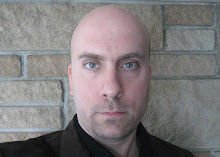The following observations on the "law of attraction" are intended to promote further independent investigation.
The "law of attraction," popularized by the movie (and book) "The Secret," is essentially "magic" denuded of ceremony and paraphernalia. Magic has been defined as the art and science of causing changes to occur according to will. Or, in other words, to bring about material changes using imagination and emotion. It’s akin to the notions of "creative visualization" and "the power of positive thinking."
The premise of the "law of attraction" is that our thoughts and emotions are invisibly linked to the world around us, and that what we think about (and what we concentrate our emotions on) we attract to ourselves.
To refer to it as a "Law" lends it the aire of scientific legitimacy. Asking for scientific proof of the "law of attraction," however, is rather like asking you to "prove" that you loved your parents.
There are aspects of the "law of attraction" that defy the scientific process (see below).
The "law of attraction" is a technique. Perhaps it works. I tend to believe it does. I have evidence in my personal life to support the notion that it works but my evidence does not constitute scientific proof to others.
Employing what I will call "the technique of attraction" does not imply the possession of the wisdom to employ it. Consider your desires. Are they worthy of realization? What is your measure of value? The technique of attraction is a means of realizing values. In that sense it’s a technology. And, as with any technology, it already possesses values that are innate to it. Frankly those values are the values of thought and desire. There are values innate to thought and desire, values independent of whatever is the object of thought and desire. Consider the values innate to thought and desire.
Several speakers who have popularized the "law of attraction" have a naïve notion of wealth. Wealth is a matter of distribution, not creation. One of the contributors to "The Secret" vaguely asserts that there is enough "good" to go around, implying that there is enough wealth for everyone. A simple understanding of economics is required here. Consider what money is. Consider what profit is.
The thought process is a small calculator compared to the balance of Nature.
To apply the "law of attraction" essentially means to concentrate on an object of desire, to desire it to the extent that you "assume" it is a present possession, and to feel and act as though the object desired is a present possession. This is only accomplished at the expense of a measure of scientific objectivity. Any "doubt" (objectivity) in regard to the "assumption" that the object of desire is presently possessed is considered a "denial" of that object. Not only is this an obstacle to the application of the scientific process but it also resembles brainwashing and even psychosis. A cautionary note.
In as much as the "law of attraction" exercises willpower it can be very useful toward developing consciousness. Developing higher consciousness requires the development of a measure of willpower and concentration, although consciousness itself is not a product of concentration or will.
In as much as applying the "law of attraction" draws one’s internal energy toward the present (by concentrating thought and emotion on the present possession of the desired object or state) it may increase consciousness. Consciousness is an acceleration of internal energy into the present. In the application of the "law of attraction" there is a tendency to empower the present, to vest one’s internal energy (with concentration and desire). That can be useful in preparation for the exercise of what I call attention, the fulcrum of conscious development.
But in as much as applying the "law of attraction" means reinforcing thought and desire, it is ultimately a technique of the personality and not (in and of itself) conscious development.

No comments:
Post a Comment